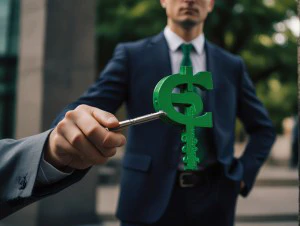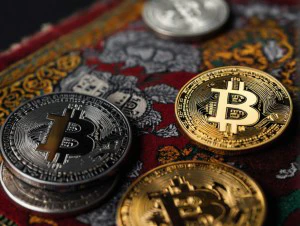The blockchain space continues to grow in popularity and relevance. It is now a bonafide sector of global finance, with terms such as ‘crypto’ and ‘DeFi’ becoming mainstream topics on global news networks.
It gained one of its most iconic nicknames, ‘the Wild West of Finance.’ because of its similarities with the frontiers of the wild west. These areas were synonymous with poor regulation, lack of consequences for raucous behavior, accompanied by characteristic cut-throat vibes and broad daylight shootouts.
While these scenarios make for great classic movies, it is not ideal for financial systems that hold more than one trillion dollars of users’ funds in different smart contracts, wallets, exchanges, etc., at the time of writing.
The crypto space has always been exciting, and it continues to churn out juicy stories that keep hundreds of crypto news platforms in the business. However, it is not always good news, especially since bad news draws a larger audience and makes for better reading.
According to the Federal Trade Commission (FTC), more than 46,000 people reported losses of over $1 billion in crypto in 2021. This figure does not include unreported transactions. Considering the amount of money flowing through DeFi platforms, the actual statistic may be more than double the reported figure.
It does not take a genius to figure out that the current status quo is unsustainable. Users cannot continue to hemorrhage hard-earned funds to faceless scammers, and in some cases, silver-tongued founders that hang around like a bad cold and leave an unpleasant sore when they eventually disappear.
Fighting Scams in the Crypto Space
Scams in the DeFi space are multi-faceted, ranging from rug pulls, to insider trading, payments for illegal activities, wasting investors’ funds, hacks, etc., and they are one of the biggest headlines out of the DeFi space. Users can get done in multiple ways, and on many occasions, it feels like there’s no recourse for these victims.
A few characters have taken it upon themselves to identify scams and raise attention to red flags around projects and the individuals involved. Some names immediately come to mind, including blockchain leaders like On Yavin, as well as self-proclaimed Twitter sleuths like Zach, Sisyphus, and Gabagool to mention a few.
While most of the names appeared on the scene more recently, On Yavin is an OG has been in the thick of things since the early days and deserves a special mention, especially for his dedication to his role as antagonist-in-chief to the LAToken exchange project when it began its scammy streak.
From the beginning, LAToken displayed several red flags.
- Purposely/negligently listing dubious projects. Case in point, when a project names Elon Musk as the founder, lead designer, CTO, and CEO, team member, it should be standard for any serious exchange to verify the information. While LAToken did not make the claim, it is incredibly unprofessional not to verify the details, especially since it turned out to be a ploy to misrepresent Elon’s and SpaceX’s involvement with its IEO.
- Fake trading and reserve volume statistics. Every exchange is probably guilty of inflating figures, but LAToken takes it to new heights.
- Ridiculously low listing requirements, with the only apparent barrier being a ridiculously expensive listing fee
- The exchange also gained notoriety for not delivering on its promises to projects.
On’s crusade against LATOKEN’s scammy streak had a spinoff when ICOBench appeared on his radar. ICOBench did not hold well to any level of scrutiny and has since gone offline. The platform was supposed to be an authority on verifying projects and their ICOs. Instead, it turned out to be a cartel with its top-ranking members handing out 5-star ratings to dubious projects.
This feels like a natural segue to introduce another lighthouse in the fight against scams – Mr. KEY. He is an expert on many technical and blockchain topics and was briefly an accredited expert on the defunct ICOBench. That experience helped him gain extensive coverage of the platform’s arbitrary rules.
According to Mr. KEY, ICOBench’s quality control measures were somewhere along the spectrum of criminal negligence and complicity in fraudulent schemes.
The stakes on spotting frauds in the crypto space and stopping them are incredibly high. If one shady project gets off the ground, it can trigger a chain of events that will send ripples throughout the global economy. Let us consider this real-life sequence as an example –
- ICOBench gives top ratings for an obviously questionable exchange (LAToken)
- LAToken uses its newly gained status to misrepresent itself to other projects (WeBuy)
- Against the recommendations of its advisors (In this case, me), WeBuy pays exorbitant fees for an arrangement that fails to yield a single conversion.
- LAToken claims its bounty and moves on to the next victim while the WeBuy project never recovers.
WeBuy’s founder was too ashamed to publicly admit that he was scammed; hence, the crime never gets ‘officially reported.’ However, these frauds are not victimless crimes, and the list is endless!
I have been active in this space for over a decade and have gone on record hundreds of times to raise the alarm when I spot funny business. A cursory look at my past publications will give you an insight into my past efforts.
The OGs in the space know that SBF does not have a monopoly on scandalous exchange meltdowns. The Mt. Gox hack (which later became BTC-e) was one of the earliest and biggest exchange scandals to date, orchestrated by Alexander Vinnik and an unconfirmed number of accomplices.
Ross Ulbricht and James Zhong also met serious reprimands for their separate involvements with fraudulent activities on the dark website – Silk Road. The latter offender pulled off a heist that accounted for a then-record Bitcoin seizure by the American government – about $3.36 billion.
Some of the Bitcoin in the reserves of Vinnik’s defunct BTC-e wallets recently became reactivated. A wallet containing about 10,000 BTC distributing its holdings in small deposits to multiple poorly KYCed accounts and wallets is never a good omen.
In fact, it is the oldest trick in the crypto fraud book; one that first-generation crypto scammers like Vinnik invented. Since Vinnik is currently behind bars, one may be right to assume that the latest development is somehow connected to his unnamed accomplices.
We still don’t know much about it, but we’ll keep a close eye on the matter as it unfolds. Also, it bears mentioning that a particular address that received a 65 BTC deposit from the recently activated bounty belongs to HitBTC, another exchange with questionable character.
Let us look at some of the other red flags that immediately become apparent when you look under HitBTC’s hood.
- An anonymous team
- False particulars of business registration
- Shady listing offers and underhand activities
- Consistent customer complaints about inability to withdraw funds, etc.
If you continue to pull at the HitBTC thread, you’ll find Andrey Savchenko, the alleged founder of HitBTC, who also has very intimate ties to KuCoin, according to this report from multiple sources.
Circling back to SBF and FTX, it is quite curious that Chainalysis immediately picked up on movements of small amounts of BTC from a wallet that has been dormant for close to a decade. Still, they never saw all the FTX robberies that occurred right under its nose for more than three years.
While this is not a strong allegation against Chainalysis, it is not a compliment either, especially when we know that there are rarely coincidences in this space.
Limitations in Fraud Prevention
A popular saying among medical practitioners is that “an ounce of prevention is worth a pound of cure.”
Unfortunately, the solution is more complicated than ‘avoid getting scammed,’ especially as the lack of regulation and anonymity make DeFi the perfect scene for illegal activities. Fortunately, the same open-ledger system also makes it easy for concerned citizens to monitor fund movements and detect foul play when it occurs.
When people spot fraudulent situations before they unfold, it is usually the word of a concerned citizen against the accused. Unfortunately, the burden of proof is usually on the accuser, who typically has limited resources.
Retail investors and amateur detectives don’t have access to the most sophisticated tools in scam detection and prevention. They also don’t have the financial strength to go head-to-head with DeFi protocols that are flush with investors’ funds, especially those without restraint on expenses.
It does not take much to discredit or even remove any material that raises concern about a project, even when the citations are legitimate. The options range from paying influencers for promotions to drown the noise, filing suits against the accuser, and even removing the material from websites.
This imperfection in structure makes it difficult to save other DeFi users from falling for elaborate scams. It’s not as if there is a lot of motivation to spot scams in the first place. Most of the costs and resources come out of pocket, except in rare cases where people receive sponsorship and donations.
The regulatory vacuum also makes it difficult to mete out justice to offenders. Most times, the most vicious scams and frauds end with public shaming and minor reputation hits.
There are almost no real-life consequences for many scams that occur on-chain, except in rare cases. Case in point, the recent legal woes of Terra’s Do Kwon immediately come to mind, but even that comes with many extenuating circumstances and possible political implications.
A more typical case is the news of the compromise of the DeFi protocol – Indexed Finance – that rocked the crypto world in October 2021. After tracing the source of the $16 million heist, the network had to resort to negotiating with the hacker to return the finds, which was predictably hopeless.
The team’s pessimistic statement also highlighted how difficult it can be to handle these smart contract exploitations.
Staying Safe in the Wild West
Until the space takes regulation seriously, arbitrariness will remain the order of the day in scam detection, prevention, and correction.
Until that day comes, our hope remains in the hands of self-appointed vigilantes, who may also have ulterior long-term motives. The disappearance of War on Rugs, a self-appointed anti-fraud crypto watchdog with over $400,000 of investors’ funds remains the ultimate classic joke up to this day.
After a decade in the blockchain space, the state of scam fighting remains a sore thumb that affects everyone within and even outside the space. For now, users have to maintain responsibility for their safety while selfless scam hunters continue in the good fight for the DeFi space we all believe in and deserve.
On Yavin leaves a guide here to help you to stay safe in the wild west that is the crypto space.
The Elephant in the Room
Certain dates will forever live in infamy for different reasons, and November 7th, 2022, is one of those days. Like everyone else connected to the crypto space, my world was rocked to the core when I saw the news of a capitulation that made us long for the good old days when Do Kwon was still public enemy number one.
For this next part to rock your world as much as it rocked mine, we have to paint a mental picture. I switched my phone to DND mode and muted all social media notifications on my PC, as I usually do when I want to write a new piece. While I went off the grid for a few hours to write about the state of fraudulent activities and characters within the crypto space, news outlets reported the biggest episode of financial misconduct ever recorded in the blockchain space.
It’s been a little over a month since the doodie show, and no one comprehends the full implications of the FTX meltdown. DeFi projects, VCs, politicians, celebrities, African tech startups, etc., more and more people are facing liquidity issues consequent to the streak of poor decisions of Sam Bankman-Fried and his accomplices.
As this article highlighted earlier, it is almost impossible to stay on top of these fraudulent situations because they are rampant, rarely punished, and hard to prove before significant damage is done. So it is fitting that in this case, it took an equally influential figure (the founder of the largest crypto exchange) in the blockchain space to take down SBF and his racket ring.
Any other person would have stood no chance against the deep pockets and community of FTX. I say this because people have expressed concerns about SBF and his spending habits in the past without much audience or consequence.
Marc Cohodes is no scrub in the crypto space, and even he could not lay a glove on SBF and FTX. This clip of Marc airing his concerns about SBF was out for a month before CZ finally came for Sam.
So, while I would have rather the feud between CZ and SBF ended without any significant impact on the crypto space, it also reinforced the point of this article. There are too many frauds in this space, and we should be able to do more to spot them and take action accordingly.
For now, we’ll regroup for the umpteenth time and try to come back from yet another setback brought on by the same issues that have plagued us for the last ten years. However, unless something changes, one day, we’ll make like Humpty Dumpty, and “all the king’s horses; all the king’s men” will no longer be able to put Humpty together again.
Final Words
‘The Internet never forgets,’ but it won’t stop some unscrupulous characters from trying to whitewash their images in preparation for another grand heist. It did not take long for SBF’s campaign to begin, with multiple ‘news’ networks casting a positive light on the mastermind behind an epic joy-ride funded by investors’ hard-earned money.
Even Do Kwon and Su Zhu got some airtime on the matter! If it was meant to be a joke, I didn’t get the headline. And I’m sure people who lost funds to the implosions they orchestrated did not find it funny either.





